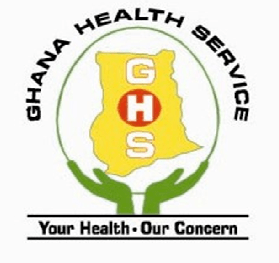Delayed reimbursement, affecting health facilities – GHS official
 Dr. Akosua Agyeiwaa Owusu-Sarong, the Central Regional Director of the Ghana Health Service (GHS) has identified the often unduly long delays in the reimbursement of the National Health Insurance (NHI) claims to facilities as having serious implications on their smooth operations and cash flow.
Dr. Akosua Agyeiwaa Owusu-Sarong, the Central Regional Director of the Ghana Health Service (GHS) has identified the often unduly long delays in the reimbursement of the National Health Insurance (NHI) claims to facilities as having serious implications on their smooth operations and cash flow.
“If we continue to focus on quality health services delivery without paying attention to cost recovery and the financial sustainability of our health facilities, we stand the risk of running these facilities down and not being able to sustain the delivery of quality health services and the positive health outcomes that we all desire.
“If we are to truly eliminate finance as a barrier to the achievement of the Universal Health Coverage (UHC), the NHIA must ensure that facilities are reimbursed timely to enable them procure the medicines and other logistics needed to provide quality essential services to the people”.
Dr Owusu-Sarpong expressed the concerns at the opening of the 2019 Regional Health Service Performance Review Confab in Cape Coast in the Central Region.
The three-day conference on the theme: “Achieving universal health coverage, through excellence in health services delivery,” assembled scores of stakeholders from the health fraternity, religious organizations, Regional Coordinating Council and the media.
The Regional Director of Health described the situation as a drawback to national efforts to ensure quality and effective healthcare services to the citizenry regardless of one’s location.
She cautioned that if prudent financial security measures were not adopted with dispatch, health facilities could not sustain production.
That will adversely affect all especially the poorest-of-the-poor and vulnerable, defeating the safety nets protection of the insurance packages.
For his part, Dr Patrick Kuma-Aboagye, the Director General of the GHS, lauded the resolve by the Service to peer-review itself as a holistic assessment tool for entrenching transparency and accountability within its ranks.
He announced plans by the Service to provide one district, one pick-up by the end of June 2020 to improve service delivery.
Highlighting some challenges facing the Service, Dr Kuma-Aboagye among others mentioned public perception of the Service, misinformation and the inconsistencies and stagnation in anaemia in women and children.
Also, he mentioned the slow pace in the reduction of neonatal mortality rate as a threat to efforts to achieve the Sustainable Development Goals (SDGs).
Towards addressing the numerous challenges, Dr Kuma-Aboagye assured that the Service was working out a more responsive and coordinated health system in line with clients’ needs to achieve cost effective quality healthcare.
Additionally, they will also explore more innovative and cost effective ways of training managers, emergency services, enhance use of internally generated funds and mitigate effects of delayed payments of NHIS claims.
Source: GNA
